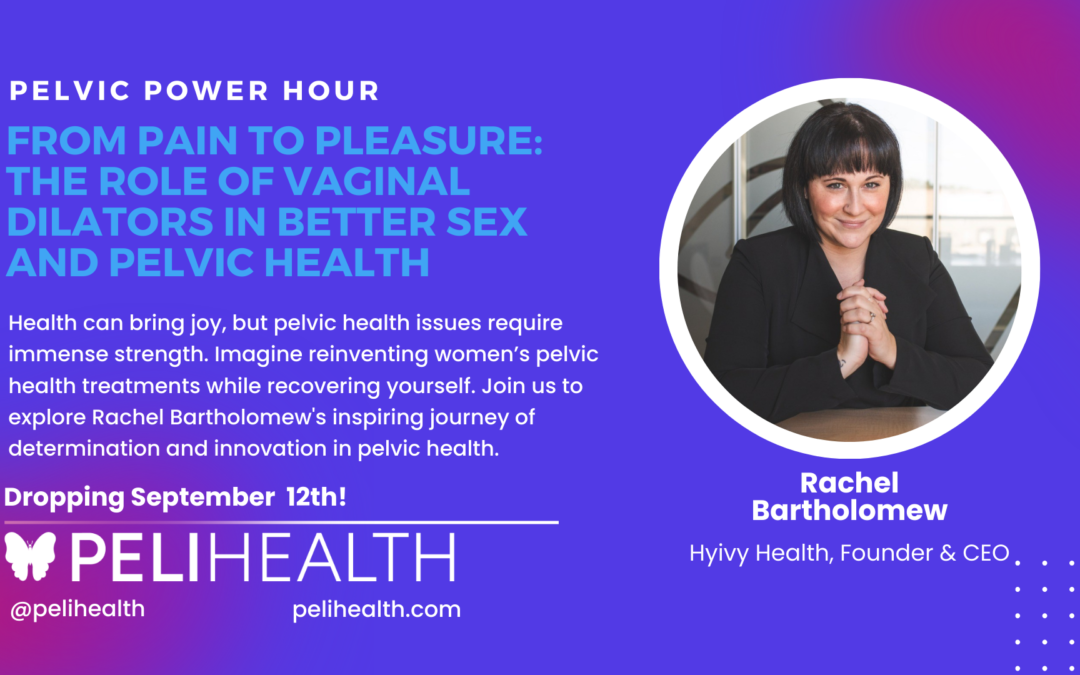As a woman or person with ovaries, there’s no doubt that you may have dealt with some kind of pelvic pain in your lifetime, perhaps you were not even aware of it, or maybe you’re thinking this is something that happens to someone less physically active or older than you . You may hear about pelvic floor issues affecting perimenopausal or postpartum women, yet 1 in 3 women are affected by pelvic floor issues.
What is Pelvic Health?
Wondering what it means when we talk about “pelvic wellness” or “pelvic health?” Pelvic wellness implies that the area below the belt is fully functional and free from any disorder or disease. This area includes the organs of reproduction (uterus, vagina, ovaries, vulva, etc.), the bladder, and bowels. These organs are protected by the pelvic bones and supported by the pelvic floor, a complex group of muscles, tissues and nerves that act like a hammock holding up your vital organs. The function of this floor is within its name; it provides a base for your core, and support for the pelvic organs. Pretty important right?
When these muscles weaken or come under stress, it can cause a pelvic floor disorder such as loss of bladder or bowel control, lower back pain, prolapse, painful sex to name a few.
Pelvic care disorders are incredibly common, so if you’re experiencing any issues in this area, you’re definitely not alone. Some of the most common pelvic disorders include urinary incontinence (1 in 3 women) and painful sex or insertion (1 in 6 women). While anyone can experience pelvic problems, women may be more likely to develop a pelvic floor disorder due to childbirth, a reduction in estrogen, and their anatomical structure.
Why Does Pelvic Care Matter?
Pelvic Floor Disorders can seriously impact your quality of life. If you have sudden changes in bodily functions or symptoms that impact your daily life, you may need treatment for pelvic floor dysfunction. These symptoms may include:
- Bladder incontinence. A weak pelvic floor can lead to accidental urination while laughing, sneezing, or coughing, or may make it difficult for you to “hold it”. This is common for women who have had a baby or are perimenopausal, and can be a real annoyance trying to navigate day-to-day activities. No one wants to have to run to the bathroom every few minutes!
- Pain and disorders with sex. Pelvic wellness for women directly impacts sexual health. You may experience pain during sex, strange discharge, problems with your reproductive organs, or other disorders related to pain during sex. Problems with sex or your sexual organs can directly impact your relationships, confidence, and overall body health.
- Bowel movement issues. Pelvic wellness also impacts your digestive system, particularly your bowel movements. Having to go to the bathroom more often, constipation, diarrhea, and gas or bloating is all common with a weak pelvic floor. Dealing with pain, incontinence, and other issues can completely disrupt your daily routine.
- Mental Health. A weak pelvic floor can impact on your overall mobility, mood, disrupt relationships, and cause chronic pain. All this can lead to feeling defeated, isolated or even depressed.
Many women find discussing pelvic health issues embarrassing, which can make it even more difficult to seek or push for help. Successfully treating pelvic issues can greatly improve your quality of life in this area.
A Weak Pelvic Floor Can Cause Permanent Damage
While many pelvic symptoms begin as just an annoyance, some disorders can get much worse if they are not managed properly. Ignoring or not taking care of your pelvic floor, putting off signs of potential bladder incontinence, changes in bowel movement, and pelvic pain, can turn into a lifelong problem. It’s important to address these issues as soon as they arise, and where possible, practice pelvic floor wellness before you feel any symptoms at all.
Achieving Pelvic Wellness
At Elana, we know how uncomfortable and confusing it can be to navigate pelvic pain and dysfunction. Whether you have a pelvic health issue, or are just curious as to how you can keep your pelvic floor in tip top shape, information on how to do that should not be a barrier.
We believe that every woman should have access to the care they need to feel good about themselves from the inside out!


